EN

September marks the cultural rentrée - there's a tingle in the air as stages are set up, amplifiers buzz again, lights switch on as quickly as they went out. The suggested motto this season is that of a return, but there are those among the cultural agents who can more easily identify with an arrival. We've looked at some immigrant communities to see who bridges culture with the new country, enriching this common language with new words and sounds.
140 years fulfilled in childhood
Escola Dança Paz — Clube Fenianos Portuenses
The club owes its name to the Irish republicans, it looked to Brazil for inspiration for its legendary nineteenth-century carnival parade and, as we walked across the satinwood and macauba wood floor, we came across an exhibition by a Hungarian painter. Multiculturalism has been part of the Fenians from the very beginning, as the chairman of the board, Vítor Tito, says. ‘Since 1904, the Fenians have considered culture to be the most critical factor in forming citizens and making the city more cohesive. The first primary schools in Porto were financed by the Fenians because we considered it essential to educate.’
With a headquarters building that takes up almost an entire block to itself, at the top of the Aliados, the Clube Fenianos Portuenses had been facing the challenges common to collectivities: the absence of residents in the centre and the multiplication of leisure spaces had considerably reduced its membership and the public that attended ithem
While the various Fenian halls remained in their usual location, Elena Pilipenko was making her own way. She studied dance in her native Kiev, Ukraine, although she has always lived in Russia. It was also in Russia that she began teaching dance to children, but the excessive number of pupils in a country so ancestrally linked to the genre led her to seek a quieter lifestyle in Italy. However, she only found the ideal rhythm when she arrived in Porto in 2017,, and never left since.
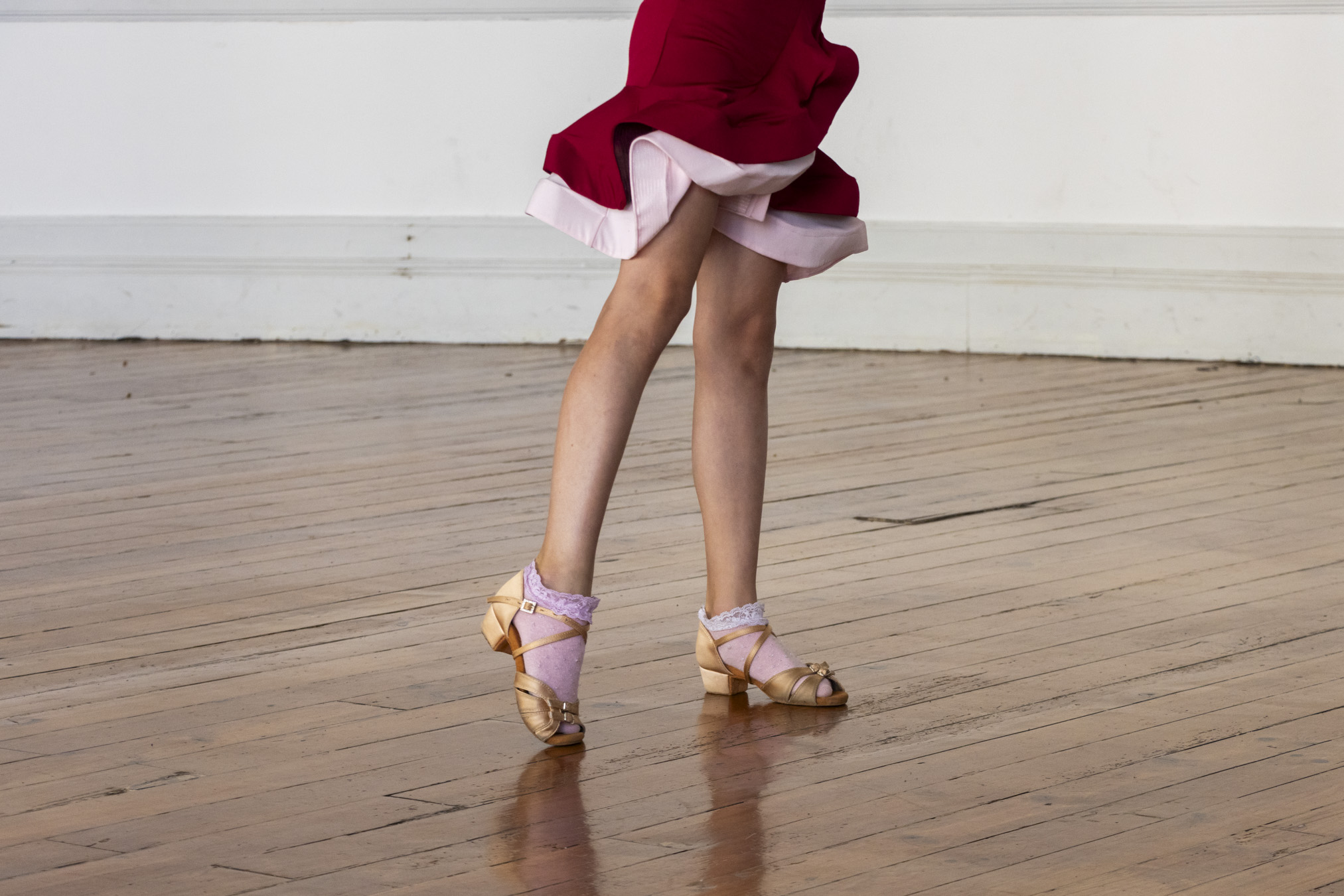
© Andreia Merca
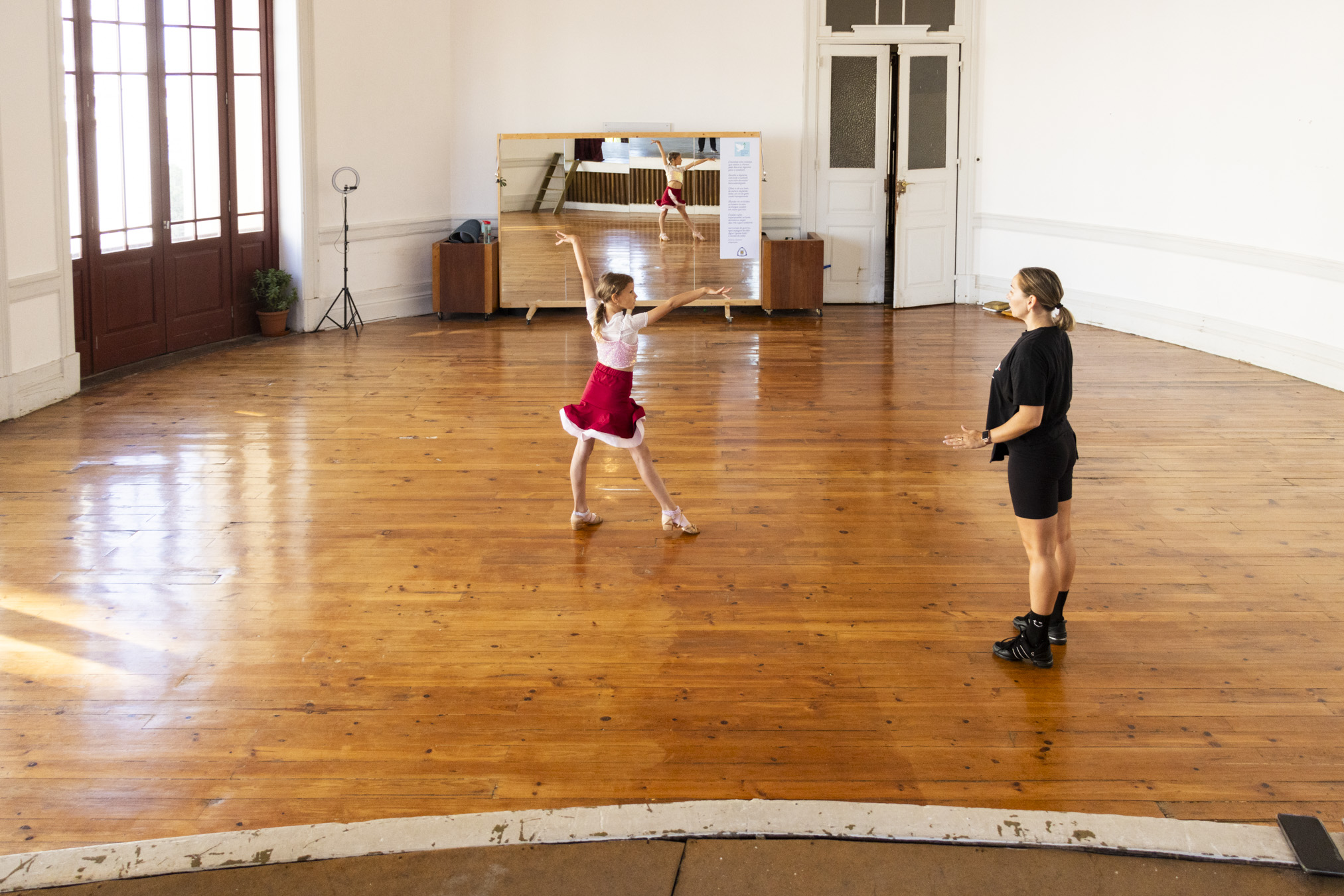
© Andreia Merca
In fact, in the community she was part of, the movement was one of arrivals - a movement that has recently intensified with a large number of people seeking refuge from the conflict between Ukraine and Russia. She tells us that there is a ‘mixture of new arrivals and long-term immigrants’, and that the coexistence between Russians and Ukrainians was not openly hostile, but that they ‘kept their distance’. ‘The problem wasn't the children, it was the parents,’ she emphasizes.
Over time, rent pressure threatened the existence of their dance classes, and the solution came from the Fenians, who willingly embraced an initiative in line with the multicultural principles of their foundation. Thus, the Paz Dance School (with pupils from 4 to 12 years old) claims to be a ‘tool for integration’. Vítor Tito explains that the objective was made clear to all the parents at a meeting in the Salão Nobre dos Fenianos, and that ‘there were a few dropouts, mainly because of the name’. But in the meantime, the number of pupils has only increased, and today there are more than 40. As well as Russian and Ukrainian children, there are now children from Spain, Kazakhstan and, of course, Portugal. ‘Our Portuguese pupil is currently the national champion,’ emphasises Elena Pilipenko.
With the arrival of the children at the Fenians - runners who ‘hadn't seen children for decades’ - also come the parents, who are gradually getting closer to the club. At the moment, several of these parents are already musicians who take part in the club's classical and jazz concerts, with regular concerts at weekends.
Anyone interested in enrolling in the Dance Peace School should contact the Clube Fenianos Portuenses office.
Good neighbours on bitter streets
Associação Bangladesh do Porto
Alam Shah Kazol wears many hats: he is a member of the Bonfim parish assembly, he is the president of the Porto Muslim Cultural Centre, he is a member of the Espaço T social integration association, he works with the United Nations Migration Agency and, finally, he is the founder of the Bangladesh Association of Porto. When we meet him on a terrace in Praça da Batalha, the juggling act needed to combine all these functions is evident: his mobile phone is constantly ringing, and Alam never seems to be able to say ‘no’ when it comes to providing help.
Alam's story in Portugal begins in 1992, when he arrived from Amishapara in Bangladesh. For the first eight years he lived and worked in Lisbon, but having occasionally visited Porto, where some friends lived, he eventually decided to move to the northern capital for good. ‘There's more nature here,’ he summarises, ’it's nicer and calmer, and the people are more welcoming.’
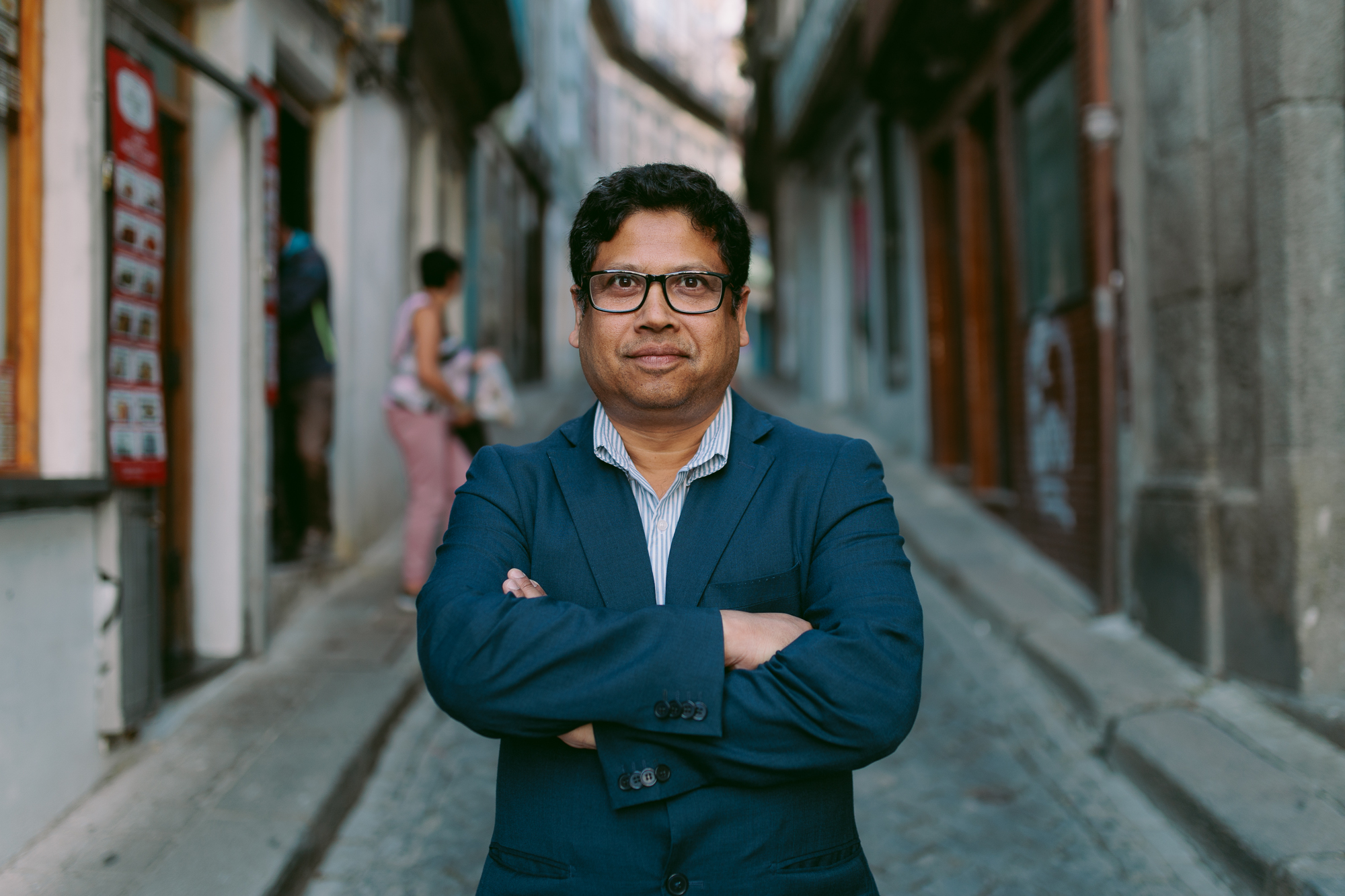
© Renato Cruz Santos
Knowing full well the problems an immigrant feels when they arrive in the city, Alam set up the Association of Bangladeshi Community in Porto. In a small three-bedroom apartment (at the time still affordable), they organised help for new residents from Bangladesh and provided them with regular Portuguese classes - ‘language is always the biggest barrier, we speak Bengali, which has nothing in common with Portuguese, not even the alphabet’. Today, the situation has been reversed: it's almost necessary to start Bengali classes. ‘Now, for example, my youngest daughter doesn't even speak Bengali, only Portuguese,’ she says.
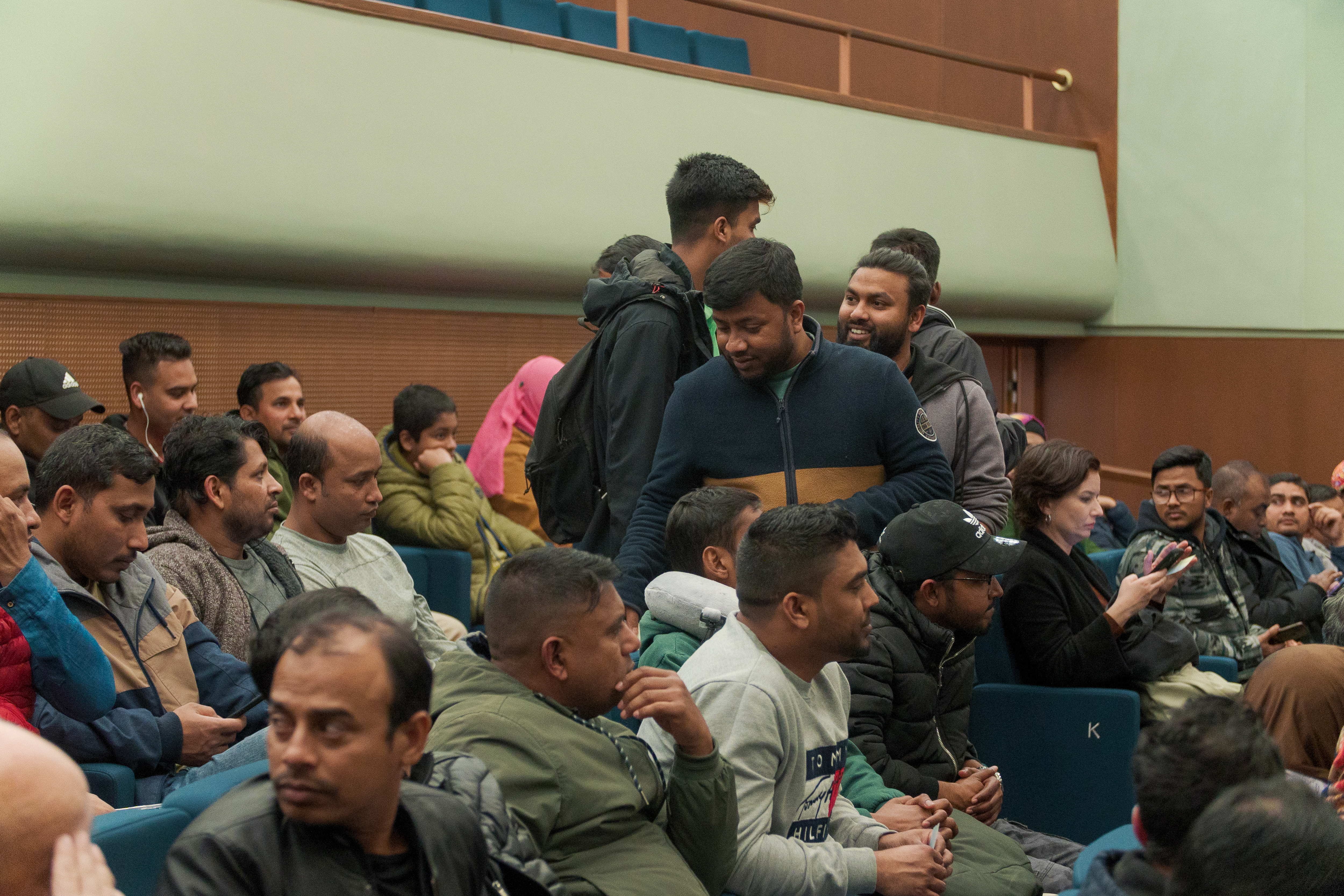
© Paulo Cunha Martins
In the early years of its activity, the Bangladesh Community of Porto organised a series of three parties celebrating Bengali culture in the old Batalha Cinema, in 2007, 2008 and 2009, but the building closed shortly afterwards. 14 years later, the community's history once again passes through Batalha with the invitation of the new Cinema Centre to create the ‘Neighbours’ programme (which earned Batalha the Access to Culture Award - Mickaella Dantas), developed in conjunction with Porto's Bangladeshi community. This is an ongoing programme of mutual knowledge in which the Bangladeshi population living near the Cinema Centre is invited to programme cinema. Interviews have been conducted with various people, exploring their relationship with cinema and their preferences. In 2023, this ongoing work resulted in three screenings of Bengali films chosen by Batalha's neighbours, bringing new audiences and a new language to this cultural facility. Alam promises that ‘there will be new screenings, the work with Batalha hasn't stopped’.
These residents, however, are currently going through a more difficult period. Affected, like everyone else, by the housing crisis, the extremely high rents are prohibitive for anyone, but even more so for those who have just arrived and don't yet have a comfortable income. Alam refers to cases of overcrowded housing as a situation that should absolutely be avoided, but realises that ‘with rents of 1,500 euros in the area where they work, here in the centre of town, new immigrants can only bear this cost by sharing it with a large number of people, and there are also those who take advantage of these people's ignorance to charge high prices.’
As well as housing, Alam is also concerned about the growing sense of insecurity. Through the association, he has always endeavoured to promote small festivals celebrating Bengali culture, always open to the Portuguese public, so that the two peoples can get to know each other better. He says he has never really felt the target of xenophobia in Porto - until recently, when, following the attacks on immigrants inside their homes last May, he made a public show of solidarity and made a statement on TV. ‘I feel that people are now more comfortable to talk, to say things,’ he concludes.
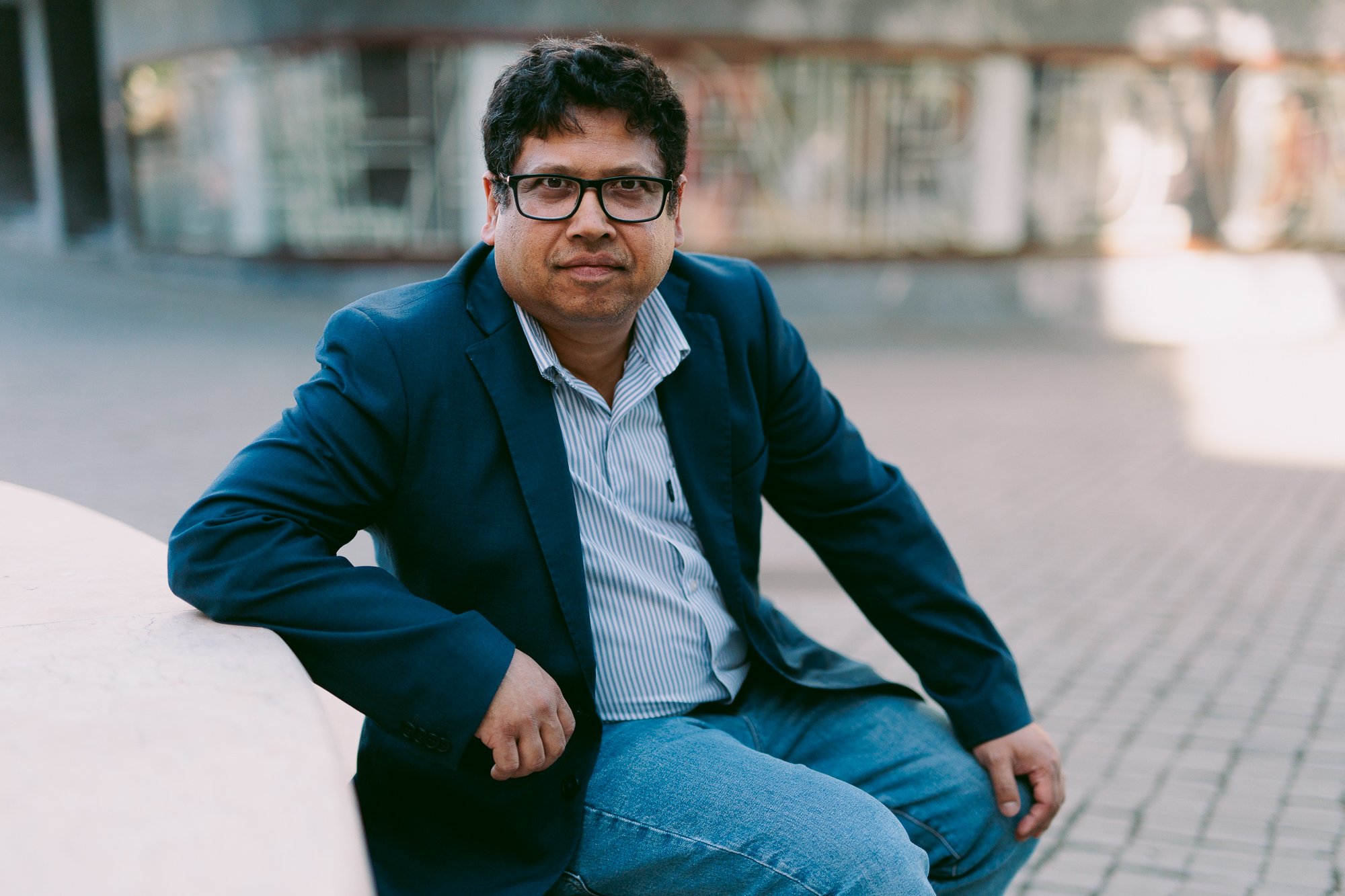
© Renato Cruz Santos
United by language
Instituto Pernambuco – Porto
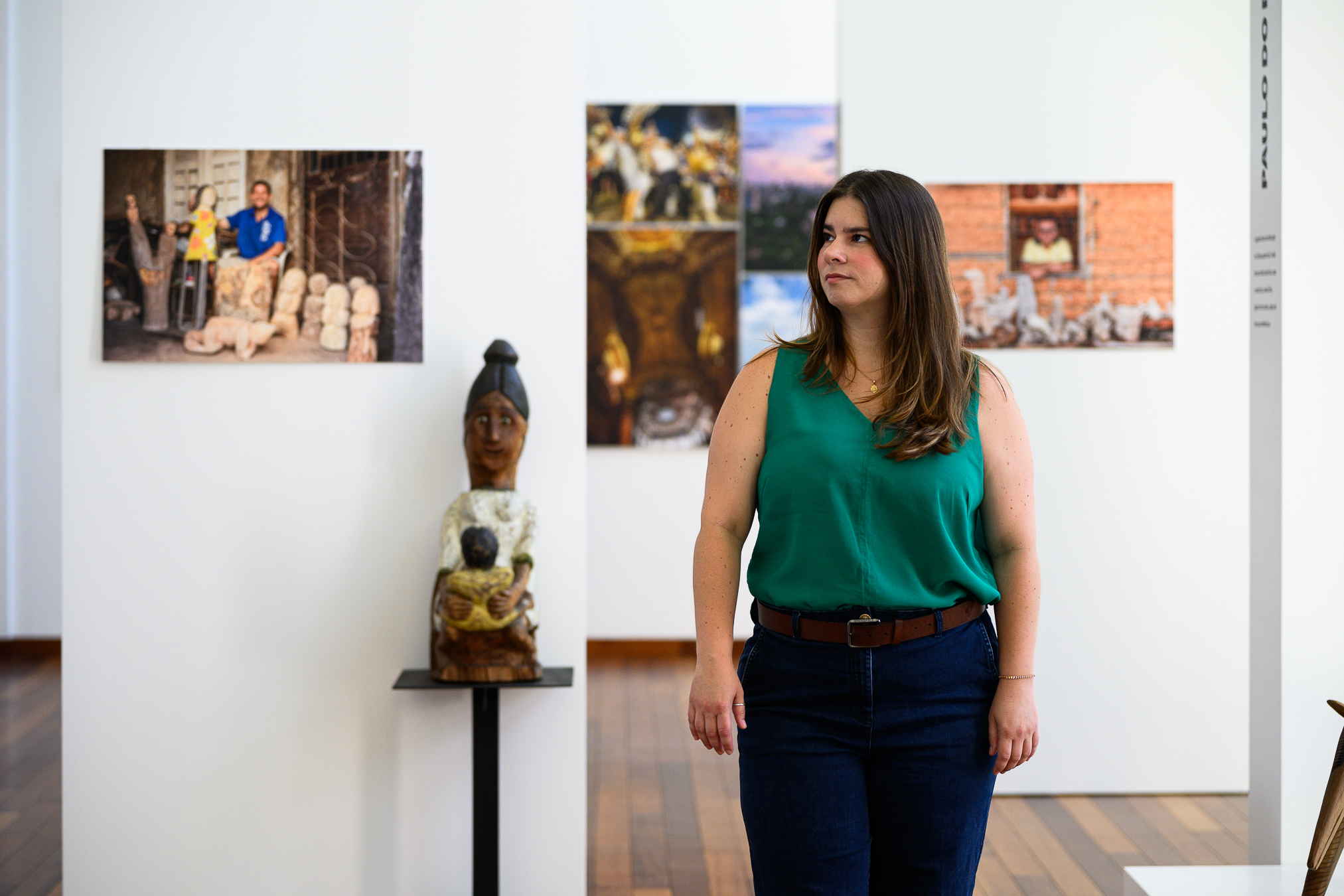
© Nuno Miguel Coelho
It's on Rua das Estrelas, just opposite the Campo Alegre theatre, that we find the Instituto Pernambuco, a large glass building designed by Brazilian architects Acácio Gil Borsoi and Janete Costa. It was founded in 1996 to be the home of Brazilians in Portugal.
Since it opened to the public two years ago, the institute's programme has made it a meeting point for those wishing to explore Brazil's cultural wealth. Germana Soares, project manager since 2019, came to Portugal from Recife to finish her master's degree in Museology and started working at the institute. With Portuguese roots, she remembers Christmases in Brazil with bolo-rei on the table, but it's with a bouncy Pernambuco accent that she warmly welcomes visitors.
Although the name refers to the state of Pernambuco, ‘the institute's mission is all-encompassing. To spread Brazilian culture in various dimensions: academic, business and social,’ she says. Among the events it organises are celebrations of Carnival, São João and the Day of the Northeasterner. In addition, the institute offers ‘an annual film show and a permanent exhibition of Pernambuco handicrafts that highlights the work of the state's artisans.’
Most of the pieces were donated by the artisans themselves, known in the jargon as masters. Janete Costa, the building's architect and a well-known figure, began to use some of these pieces in decorative projects, starting a campaign to valorise them. Today, not only are the livelihoods of these artisans assured, but Pernambuco residents can see their identity preserved and reflected in these handicrafts.
Zeferino Ferreira da Costa, the president of the institute, idealised this space as a point of union between Portuguese and Brazilians. Having emigrated to Brazil over 60 years ago, Zeferino believes that Portugal and Brazil still have a lot to learn about each other. The institute aims to strengthen these ties by sharing Brazil's cultural diversity and keeping Brazilians in Portugal close to their origins.
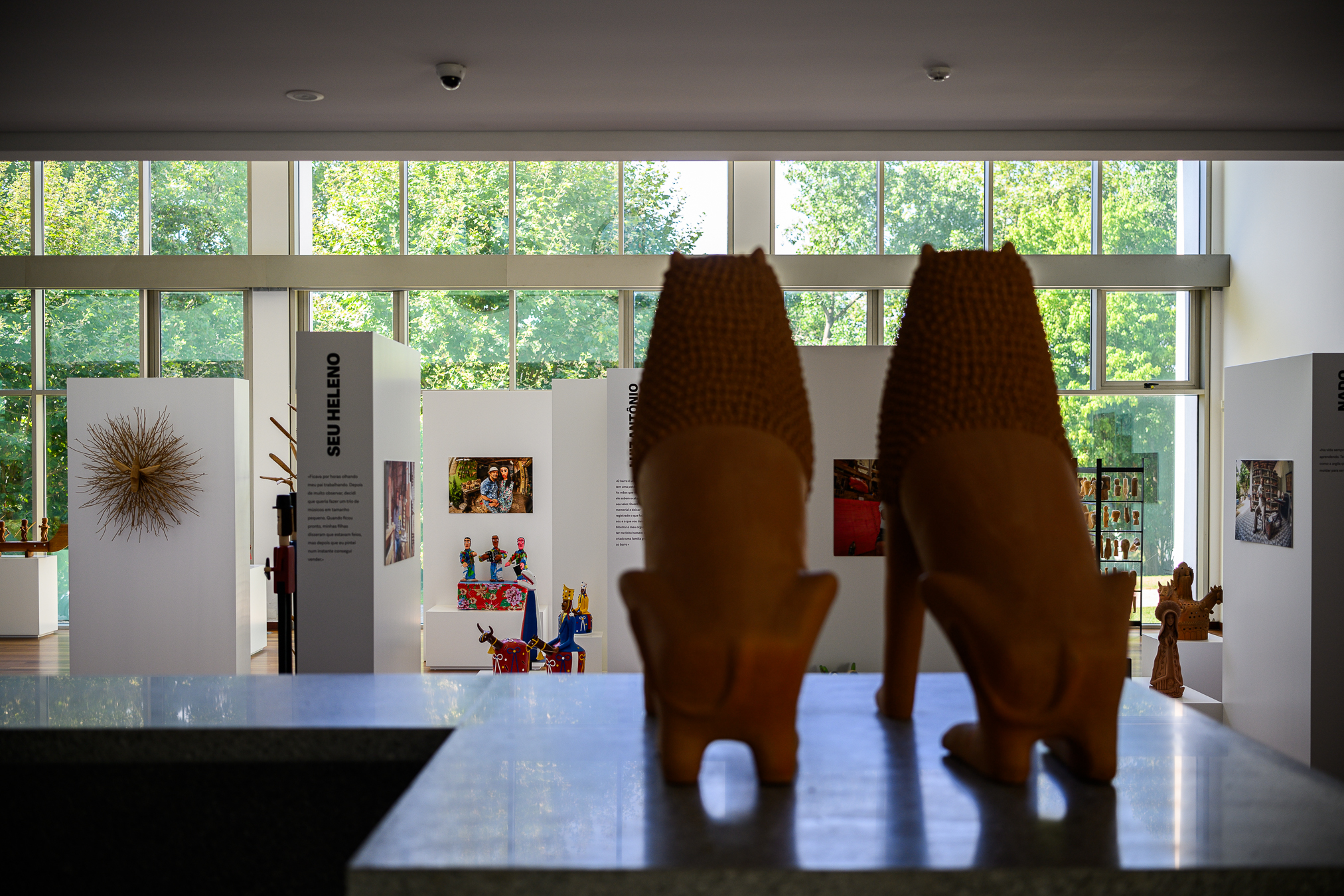
© Nuno Miguel Coelho
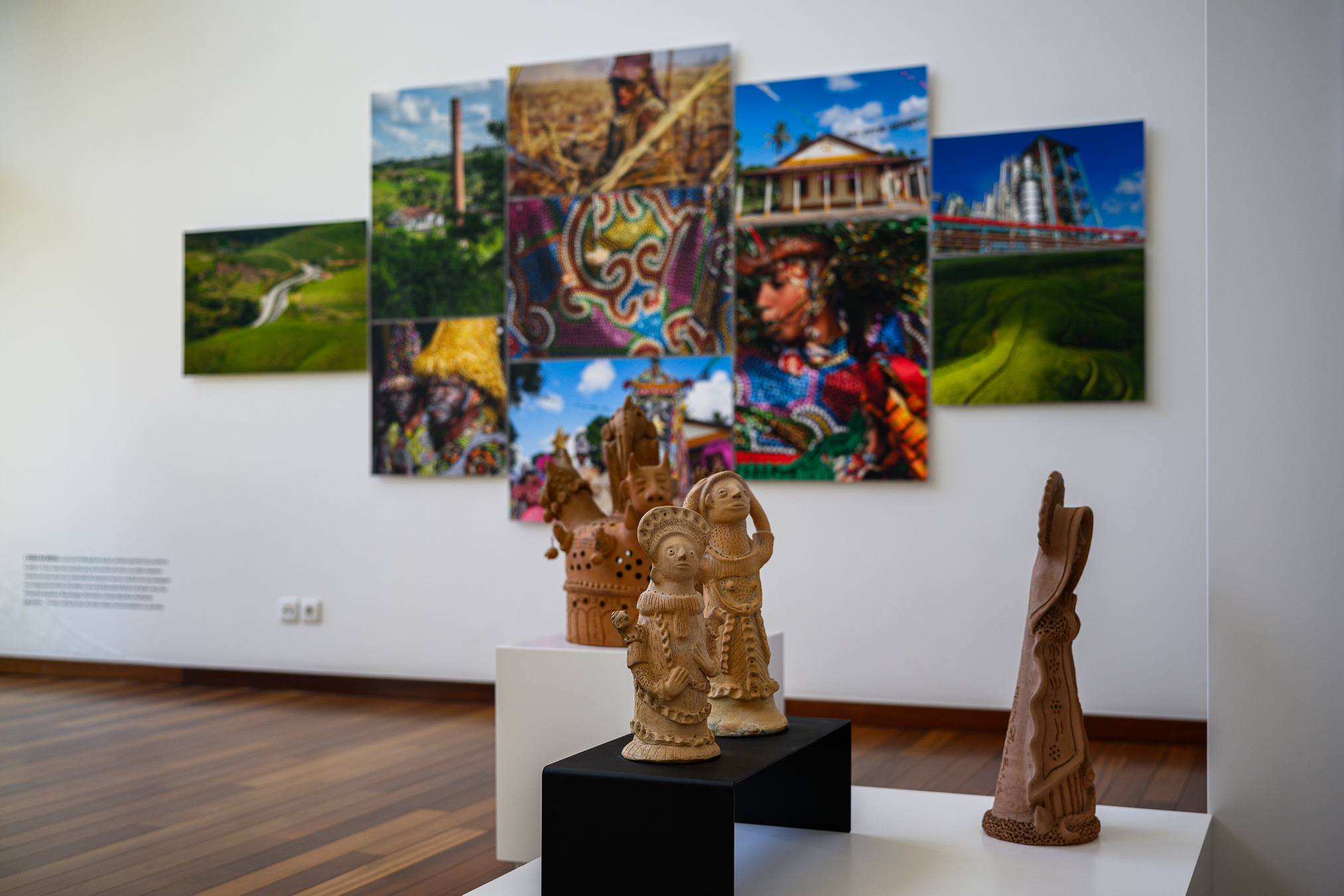
© Nuno Miguel Coelho
‘Our aim is to make this space known to the city and to make the Portuguese feel welcome and curious about our culture. We also want our activities to be part of the city's cultural programme, so that we can continue our purpose.’ This year, they hosted the municipal project ‘Cinema Fora do Sítio’, with a film screening outside the building to make the Portuguese public aware of the facilities.
The Pernambuco Institute's dedication to creating an inclusive and culturally rich space is reflected in the diversity of its free events, providing immersive experiences in Brazilian culture through music, dance, crafts and cinema. Still young, the institute is committed to expanding and introducing new events every year - but for now it invites the whole community to visit its permanent exhibition and keep an eye on its programme.
An open door for arriving migrant artists
Coletivo Epifania
Founded at the end of 2021 in Porto, the Epiphany Collective brings together immigrant artists and creatives from different fields who ‘join forces with the aim of promoting art, culture and diversity’. This cultural association, which has 12 members on its board and has a ‘captive place’ at Casa D'Artes do Bonfim, aims to ‘create spaces for reflection, dialogue and transformation, through collaborative projects and artistic interventions’.
Vinicius Armistrong is one of the collective's active members. He moved to Porto in 2018 and in 2019, ‘just before the pandemic, he started liaising with immigrant social movements’ in the city. From these contacts, informal groups emerged which, after the pandemic, became associations. ‘In Coletivo Epifania we come from different areas, and we started doing open workshops to learn from each other; then we realised that we could create a project with free workshops to teach not only our friends, but anyone who wanted to learn.’
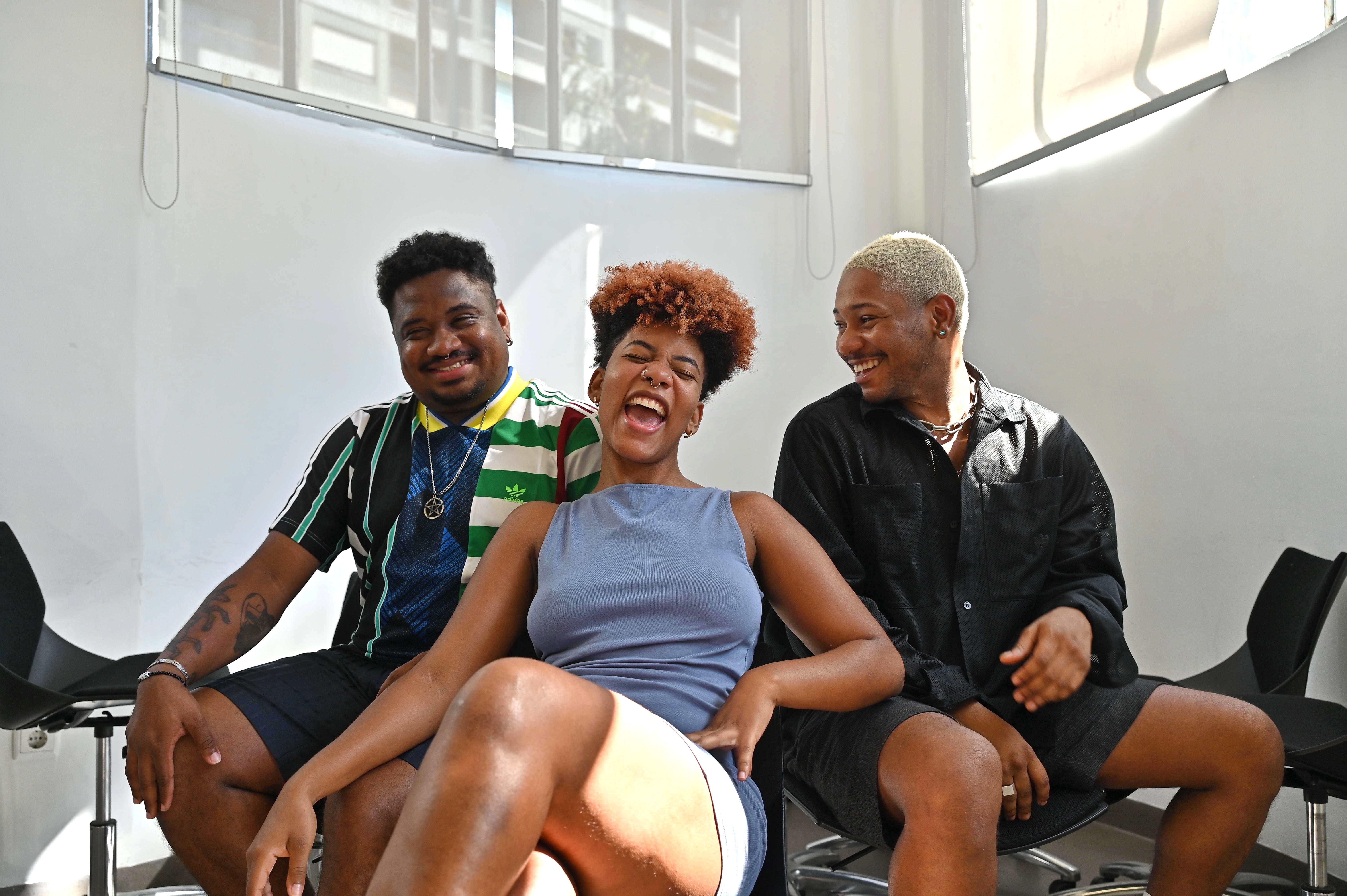
© Rui Meireles
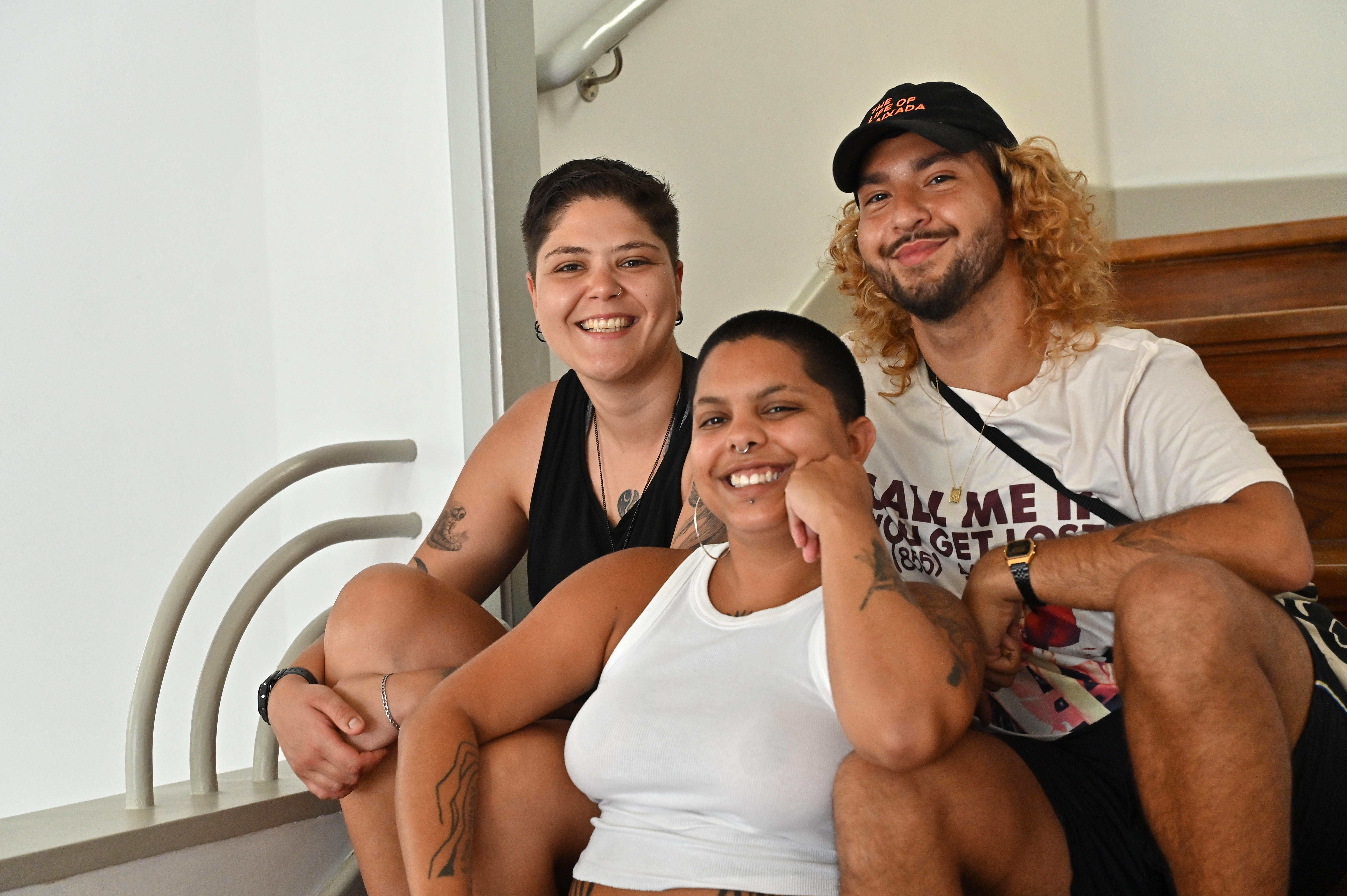
© Rui Meireles
‘Encouraging the inclusion and participation of marginalised groups’ in artistic and cultural projects and supporting the immigrant artistic community are two of the collective's objectives. ‘Sometimes the system doesn't know how to deal with new people [who bring other projects to the city], but I think it's improving,’ he says. In this sense, he points to the arrival of Batekoo at the Hard Club in July, organised by Coletivo Epifania. This is an entertainment, culture and education platform by and for the black and LGBTQI+ community in Brazil. ‘Bringing Batekoo, who are already a reference in Brazil for the queer and black community, to Porto is very important for us. They are a reference for what we want to be here,’ says Vinicius.
Among the various projects of this association made up of Brazilian immigrants, Vinicius highlights the RUA festival, which usually takes place in June. It was the first event created by the collective and stands for Resgate, União e Ativação, the three axes of this community project that began in Bonfim and expanded to the neighbouring parish of Campanhã. ‘Now we're trying to expand RUA nationwide, and we've also done two actions in Brazil.’
The Resgate axis focuses on the free artistic workshops that the collective organises. ‘Educational art projects always plant a seed and end up working as a kind of cultural rescue for communities, and that's what happened to me,’ he says. The Union axis concerns the ‘Arte, Cultura e Comunidade’ platform (link), a digital magazine that aims to unite artists from Brazil and Portugal so that they can ‘get to know each other's work’. ‘And we want to show that when we come to Europe [we don't stop creating]; we want to show that there are immigrant people who are resisting through culture, too,’ says Vinicius. ‘Finally, the Activation axis concerns the territory, and it's the festival that ‘activates’ the territory.’ He adds: ‘We often challenge students who have taken photography or mixing workshops, for example, to take part in RUA, which usually takes place in more marginalised areas, such as the neighbourhoods of Cerco, Contumil, Machado Vaz and Fontainhas. We're usually very well received, with open hearts,’ he emphasises.
The Epiphany Festival is another of the events organised by this Brazilian collective which, since it was created, has promoted more than thirty free workshops. At the moment, a circus workshop is taking place.
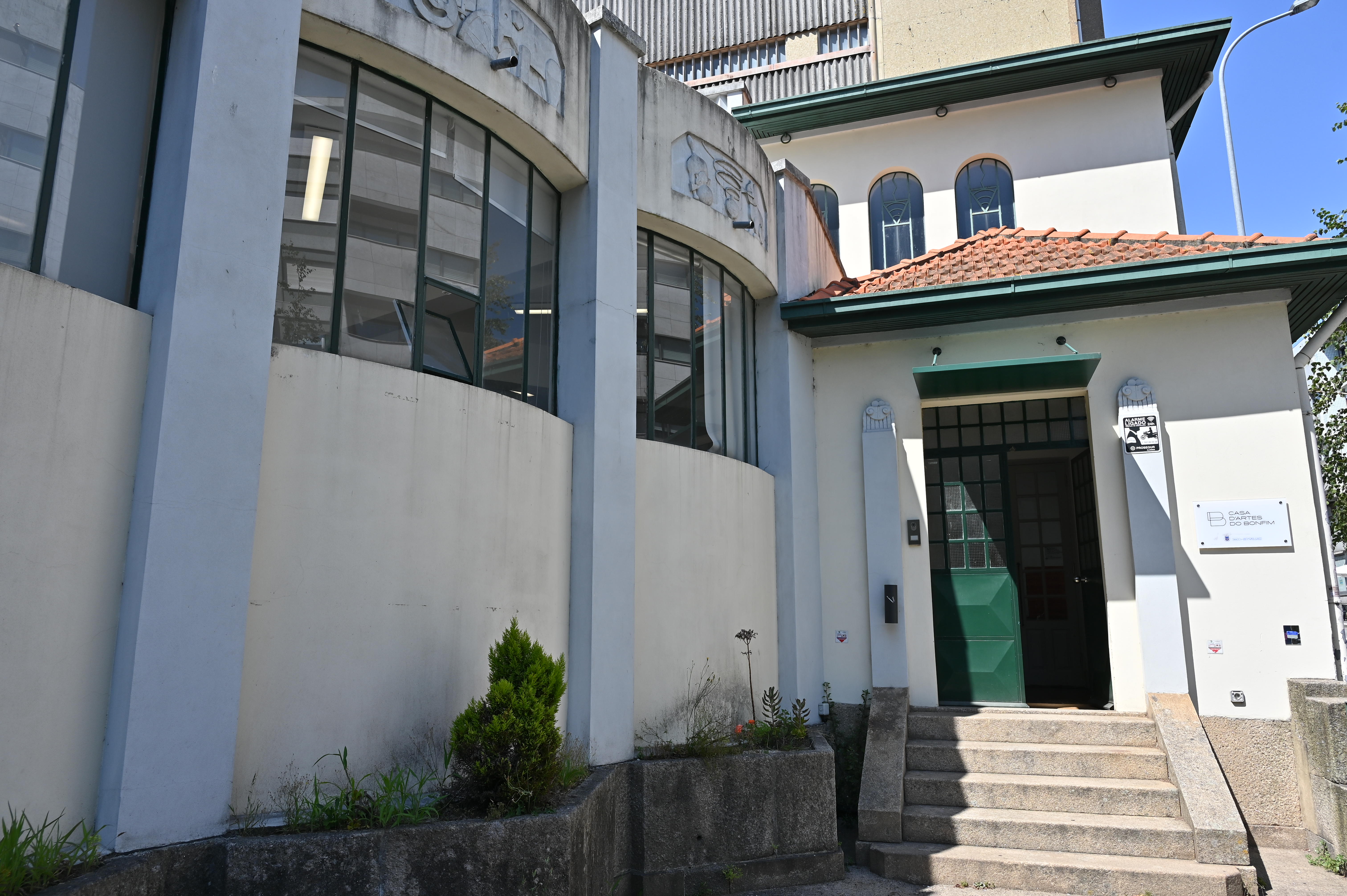
© Rui Meireles
by Gina Macedo, Maria Bastos e Ricardo Alves
Share
FB
X
WA
LINK
Relacionados

